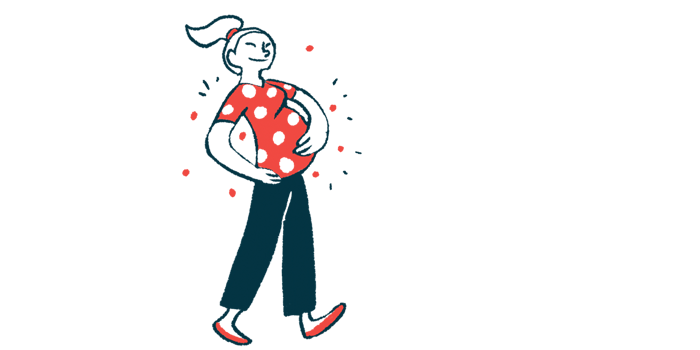Soliris may boost pregnancy outcomes for women with PNH
Their babies have higher chances of survival, meta-analysis study found
Written by |

Pregnant women with paroxysmal nocturnal hemoglobinuria (PNH) who receive Soliris (eculizumab) have higher chances of their babies surviving compared with those who don’t, with fewer miscarriages before 24 weeks, a meta-analysis study has found. Biosimilars of Soliris are also available.
“Eculizumab appears to be safe and benefits pregnant women with PNH,” researchers wrote.
The study, “Paroxysmal nocturnal haemoglobinuria in pregnancy — a systematic review with meta analysis,” was published in the Annals of Hematology.
PNH may increase risk of miscarriage, premature birth
PNH is caused in most cases by a mutation in the PIGA gene in specific stem cells. In PNH, the complement system, a cascade of proteins that is part of the immune system, mistakenly targets the body’s red blood cells, triggering their destruction. This can result in too few red blood cells in circulation to carry oxygen to tissues.
During pregnancy, PNH may increase the risk of complications, such as miscarriage and premature birth.
While it’s “not universally available,” Soliris, an antibody-based treatment that blocks complement activation by targeting a protein called C5, is often used in pregnant women with PNH. “Limited data suggests that it confers benefits for pregnant women,” the researchers wrote.
To collect evidence on the benefits of Soliris for these patients, researchers combined data from 35 studies — mostly single case studies or small case series — which reported on the outcomes of 190 pregnancies from 135 women with PNH. Most women (80%) were diagnosed with PNH prior to their first pregnancy. Soliris was used in 131 pregnancies.
Women who received Soliris were a mean of eight years older than those who didn’t (34 years vs. 26 years). In about two-thirds (69%), Soliris was started before conception. Three women discontinued Soliris in early pregnancy, but all others continued Soliris during pregnancy and after childbirth.
Of the 59 pregnancies in which Soliris was not prescribed, 30 (51%) occurred before the approval of Soliris in the U.S. and Europe in 2007. In the remaining 29 pregnancies, the reason for withholding Soliris was not specifically documented.
There was one death, which occurred in a woman who didn’t receive Soliris. A higher percentage of babies born to women who received Soliris survived compared with those who didn’t (82% vs. 69%). Miscarriages before 24 weeks were about twice as common in women who didn’t receive Soliris.
However, “a higher proportion of women in the non-eculizumab group received their PNH diagnosis during pregnancy or after delivery, which is likely to contribute to the poorer outcomes observed in the non-eculizumab group,” the researchers noted.
Preeclampsia, a pregnancy complication characterized by high blood pressure and organ damage, was common in women with PNH, possibly due to poor blood flow into the placenta. Women treated with Soliris showed a trend toward lower risk of preeclampsia, but the difference was not statistically significant. There was a trend toward fewer premature births as well.
“These findings suggest that with high-quality, well-planned care for women with PNH, maternal and fetal outcomes can be generally good,” the researchers wrote, adding that larger studies are needed to validate the findings.




